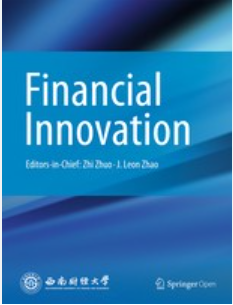Scale elasticity and technical efficiency measures in two-stage network production processes: an application to the insurance sector
IF 7.2
1区 经济学
Q1 BUSINESS, FINANCE
引用次数: 0
Abstract
In performance analysis with tools such as data envelopment analysis, calculations of scale properties of the frontier points are studied using both qualitative and quantitative approaches. When the production process is a bit complicated, the calculation needs to be modified. Most existing studies are focused on a single-stage production process under the constant or variable returns to scale specification. However, some processes have two-stage structures, and, in such processes, the concepts of scale elasticity and returns to scale are inextricably related to the conditions of the stages of production. Thus, an evaluation of efficiency, scale elasticity, and returns to scale is sensitive to stages. In this study, we introduced a procedure to calculate technical efficiency and scale elasticity in a two-stage parallel-series production system. Then, our proposed technical efficiency and scale elasticity programs are applied to real data on 20 insurance companies in Iran. After applying our estimations to a real-world insurance industry, we found that, (i) overall, the total inputs of insurers in the life insurance sector should be reduced by 9%. Moreover, the inputs of nonlife insurers should be reduced by 50%. The final output in the investment sector must be increased by 48%. (ii) There are inefficiencies among all insurers in the investment sector, and to improve technical efficiency, the income from investments should be increased significantly. (iii) Finally, the efficiency and elasticity characterizations of insurers are directly subject to stages.两阶段网络生产过程中的规模弹性和技术效率措施:在保险业中的应用
在使用数据包络分析法等工具进行绩效分析时,会采用定性和定量两种方法研究前沿点的规模属性计算。当生产过程稍显复杂时,需要对计算方法进行修改。现有研究大多集中于规模收益不变或可变规范下的单阶段生产过程。然而,有些生产过程具有两阶段结构,在这些过程中,规模弹性和规模收益的概念与生产阶段的条件密不可分。因此,对效率、规模弹性和规模收益的评估对阶段非常敏感。在本研究中,我们介绍了一种计算两阶段平行序列生产系统中技术效率和规模弹性的程序。然后,将我们提出的技术效率和规模弹性程序应用于伊朗 20 家保险公司的真实数据。将我们的估算应用于现实世界的保险业后,我们发现:(i) 总体而言,寿险业保险公司的总投入应减少 9%。此外,非寿险保险公司的投入应减少 50%。投资部门的最终产出必须增加 48%。(ii) 投资部门的所有保险公司都存在效率低下的问题,为了提高技术效率,应大幅 增加投资收入。(iii) 最后,保险公司的效率和弹性特征直接受阶段影响。
本文章由计算机程序翻译,如有差异,请以英文原文为准。
求助全文
约1分钟内获得全文
求助全文
来源期刊

Financial Innovation
Economics, Econometrics and Finance-Finance
CiteScore
11.40
自引率
11.90%
发文量
95
审稿时长
5 weeks
期刊介绍:
Financial Innovation (FIN), a Springer OA journal sponsored by Southwestern University of Finance and Economics, serves as a global academic platform for sharing research findings in all aspects of financial innovation during the electronic business era. It facilitates interactions among researchers, policymakers, and practitioners, focusing on new financial instruments, technologies, markets, and institutions. Emphasizing emerging financial products enabled by disruptive technologies, FIN publishes high-quality academic and practical papers. The journal is peer-reviewed, indexed in SSCI, Scopus, Google Scholar, CNKI, CQVIP, and more.
 求助内容:
求助内容: 应助结果提醒方式:
应助结果提醒方式:


